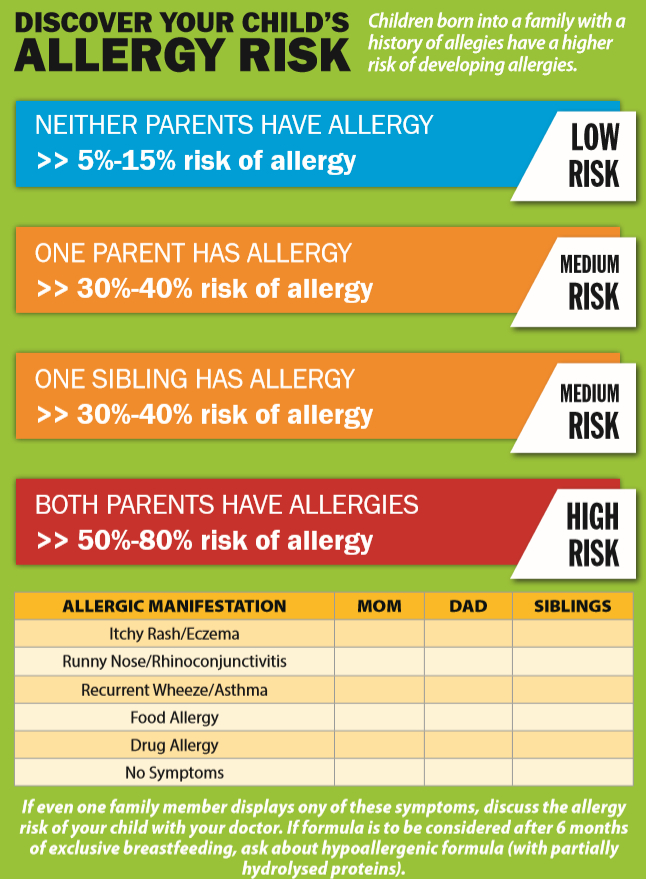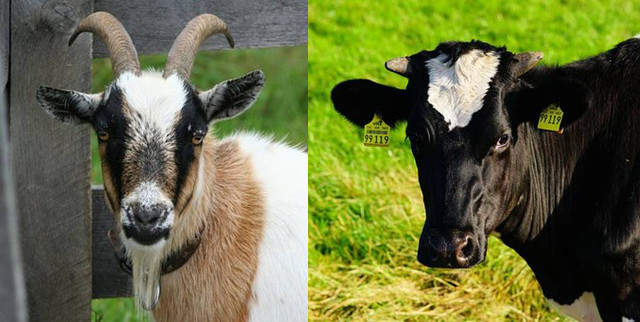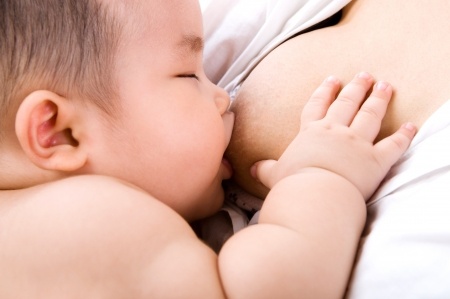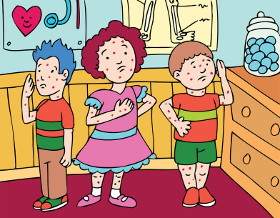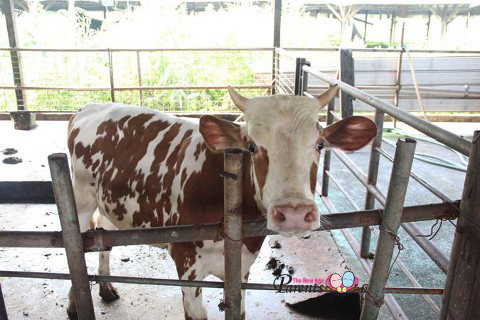Milk formulas offer complete nutrition for your baby, but it may also contain intact cow’s milk protein. A baby with allergic may not tolerate the cow’s milk proteins. The symptoms of a baby’s allergy and food intolerance can vary. Take the quiz now to test your knowledge and preparedness for your baby’s health.

Question 1:
My baby doesn’t seem well after bottle feeding with milk formula or dairy product.
a) My baby may be allergic to cow’s milk proteins
b) My baby may have lactose intolerance
c) A. or B.

Question 1 and the Answer is C
A baby that feels unwell after formula feeding may be showing symptoms of:
• An allergy to the proteins found in cow’s milk. The proteins provoke a defensive reaction by the immune system causing the child to become unwell.
• An intolerance to the sugar in the milk, called lactose intolerance. It will result in the insufficient secretion of lactase, the enzyme which breaks down lactose, in the intestine.
The number of cases of allergies has been on the rise and the cause is still vague according to specialists. For example, eczema is an allergic condition affecting about 20% of young children under the age of 2. Surprisingly, of the children who suffer from severe eczema, 30% of them could also have a food allergy. If you think your baby is having a reaction to cow’s milk, seek medical advice immediately.
Question 2:
The following are signs of an allergy to cow’s milk proteins:
a) Skin: hives, eczema, redness and/or dryness.
b) Digestive: regurgitation, vomiting, chronic diarrhoea (in newborn babies), stomach pain (in young children).
c) Respiratory: wheezy cough, asthma, difficulty breathing.
d) All of the above
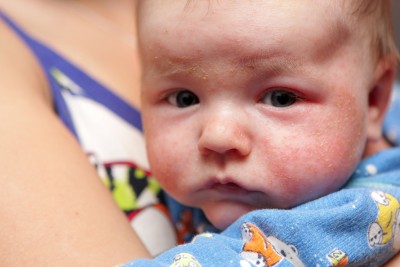
Question 2 and the Answer is D
It is not easy to tell the difference between a cow’s milk protein allergy and lactose intolerance, as the signs vary and may be confused with other conditions.
In general, there are three main types of symptoms indicating an allergy to cow’s milk proteins, namely skin, digestive and respiratory, as opposed to mainly digestive symptoms for lactose intolerance.
The symptoms caused by an allergy tend to last longer and rise in intensity over long periods, whereas signs of lactose intolerance are generally more episodic in nature, occurring and resolving within a few hours after feeding.
Question 3:
When there is a history of allergies in my family. This is:
a) Not a factor
b) Of major significance

Question 3 and the Answer is B
It depends. A parent or sibling may be allergic to foods such as cow’s milk but that does not mean that the baby has also inherited their allergy to cow’s milk. In general, it has been observed that families with food allergies tend to have a history of other types of allergy.
If either parent has a family history of allergies, it will be best for your child to undergo full allergy testing with a specialist. The specialist may carry out a food challenge (with the benefit of immediate observations of adverse reactions), and/or possibly blood or skin prick tests to determine which foods your child is allergic to.
Question 4:
I used to have eczema when I was a child, does it mean that my baby has a higher chance of developing an allergy?
a) Yes
b) No

Question 4 and the Answer is A
As allergy is genetically predisposed, if the baby is born into a family with parental history of allergy, he runs a higher risk of developing an allergy. While there is not yet a cure for allergic disease, your doctor can help you to develop a plan that may reduce his risk.
You should, of course, follow the advice of your doctor, but here are some ideas to consider:
First of all, you will most likely be advised to breastfeed the baby. If formula is to be considered, after breastfeeding your doctor may introduce you to a clinically proven partially-hydrolysed protein formula, in which the proteins are much smaller and more easily digested, so that your baby would tolerate the formula well. Partially-hydrolysed protein formula is just as nutritious as regular cow’s milk formula and will contribute just as effectively to your baby’s growth.
Secondly, you may have to delay the process of weaning your babies onto solids. Your doctor will alert you not to wean your baby earlier than 4 months. You can learn along the way what to feed your baby after 6 months. Lastly, you may seek your doctor’s advice on how to make adjustments to the environment to reduce allergy risk, such as avoiding smoking or cleaning regularly to eliminate dust mites.
Use the table on the below to help find out your child’s allergy risk.
In Singapore, allergies like Atopic Dermatitis (Eczema) now affect 1 in 5 children.
If your baby displays symptoms of an allergy or milk intolerant, seek advice from a paediatrician or physician on the recommended formula for your child.
This is an educational piece meant for non-breastfed babies from Nestlé Start Healthy, Stay Healthy. This is not intended as a substitute for professional evaluation.
* * * * *
Like what you see here? Get parenting tips and stories straight to your inbox! Join our mailing list here.
Want to be heard 👂 and seen 👀 by over 100,000 parents in Singapore? We can help! Leave your contact here and we’ll be in touch.

































